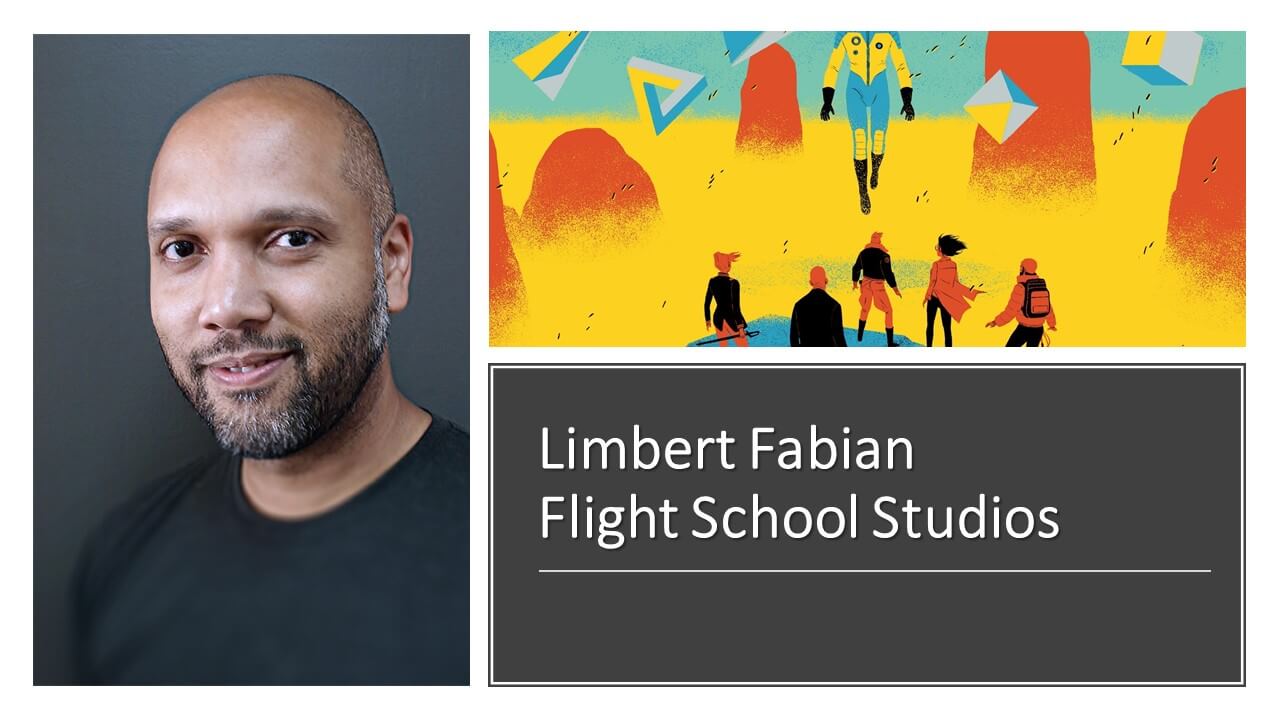Flight School Studio is a Dallas-based studio that creates augmented reality (AR), virtual reality (VR), immersive media and animation projects for their clients. Their mission? To define the future of entertainment by creating compelling content with new and emerging technologies.
AdChat DFW caught up with Limbert Fabian, Co-Founder and Executive Creative Director of Flight School to learn more about these exciting new technologies and what they mean to brands.
AdChat DFW: Tell us a little bit about Flight School.
Limbert: Flight School is a story studio and we work in immersive media, so we are trying to figure out how to tell stories in a medium where the user and viewer are in the middle of it and the story takes place in there. It can take shape from games to VR to AR or any technology that’s immersive and emerging at the same time. Flight School produces our own original content, like our newly launched, Creature in the Well or our Emmy Award® nominated experience, Manifest 99. We also work with brands like American Express, Verizon, Oculus and Facebook.
AdChat DFW: How do you make these technologies like AR an VR meaningful to the user?
Limbert: We like to approach everything as if the audience doesn’t know anything about immersive mediums and try to create memorable experiences. That’s the important thing for us. The way we make it meaningful and enriching is to make the tech opaque. When we work in VR, we talk a lot about pre-headset and the post-headset. How you arrive at using the thing is just as important as doing the thing
We want the experience to be as low friction as possible so that it’s memorable. That memory is what makes it human and generates the story for us. So, we make it as effortless as possible when engaging with the technology, whether it’s putting on a VR headset or launching an AR app on your smartphone.
AdChat DFW: How do you get past that wow factor to make it an everyday happenstance for the user?
Limbert: I know that we’re still in this place where VR is kind of novel for a lot of people because it’s something they don’t do on a regular basis but I think as headsets become more available and affordable, it will become part of your entertainment system at home and will be about making it as playful as possible.
AdChat DFW: Like 10 years ago the iPhone was completely different than it is now. Now everybody takes it for granted.
Limbert: AR specifically is one of those things that I believe people will adapt quickly because it’s in line with the way things work in our world. But, on the VR side, I think people will still need to carve out time to escape into a virtual experience.
AdChat DFW: Do you think AR and VR is a believable alternative to reality or do we have a way to go yet?
Limbert: Personally, I think we have a ways to go. We need to get over the hurdle of access. Once we have VR headsets that are more affordable, we’ll be able to escape on a regular basis. Right now, the fidelity – the look and feel of that world – has a ways to go. We’re looking for true presence in other realities and we need to get a bit closer for it to feel powerful.
AdChat DFW: How do you approach each project?
Limbert: For me and our studio, we look at the most human way of approaching it, looking for ideas that feel intuitive and start from there. The project sort of evolves from that point of view. That onboarding experience is very important and we don’t want to take that for granted.
When we work with brands, there’s something that needs to be solved and a brand experience to consider. Because immersive technologies put you at the center of the experience, we create a world which allows freedom to experience the story. Hopefully, that world is going to help you answer and ask questions that connect you to the brand or story.
AdChat DFW: Give us examples of how you helped brands tell their story.
Limbert: Last year for CES, we did a project for Dell with AR where we explained how their new laptop is the best device to watch Netflix movies on. The AR experience creates a small little universe of people and they gather around to see a movie, with the laptop’s screen as a movie theater. Little seats popped up and the tiny people get popcorn, which built intrigue. You’re looking at it in an engaging way that you can only do with AR. The brand’s message is that your laptop is your personal movie theater. So, you directly connect with what the characters are doing.
AdChat DFW: What is the future for Flight School?
Limbert: We’re interested in creating new worlds and stories. That’s a big thing. So, whether it be games, whether it be VR experiences, whether it’s taking advantage of AR as a layer over our world, we want to be able to create worlds for people to step into. And then once they’re there, then we’ll have a good time.
AdChat DFW: Do you do work for local agencies?
Limbert: Our wish is that our body of work will inspire or resonate with potential projects – that our work says something about how we think. We are willing to work with anyone that is looking to engage with interactive experiences to tell a story.
Our process is to deconstruct the brief and look at what will lead to a memorable experience for the audience. That process is a very collaborative one that we hope creatives can buy into.
AdChat DFW: What’s the one thing that you would tell a top creative director about how immersive technology can help augment their brands?
Limbert: The memory of an immersive experience is powerful. We want to place people in a world that is supported by the brand or the messaging in some way that the audience feels like they’ve conjured up in participating on their own terms. It’s a very different way of thinking about it and makes them remember your brand so much more deeply.
Check out some of Flight School Studios recent work…









